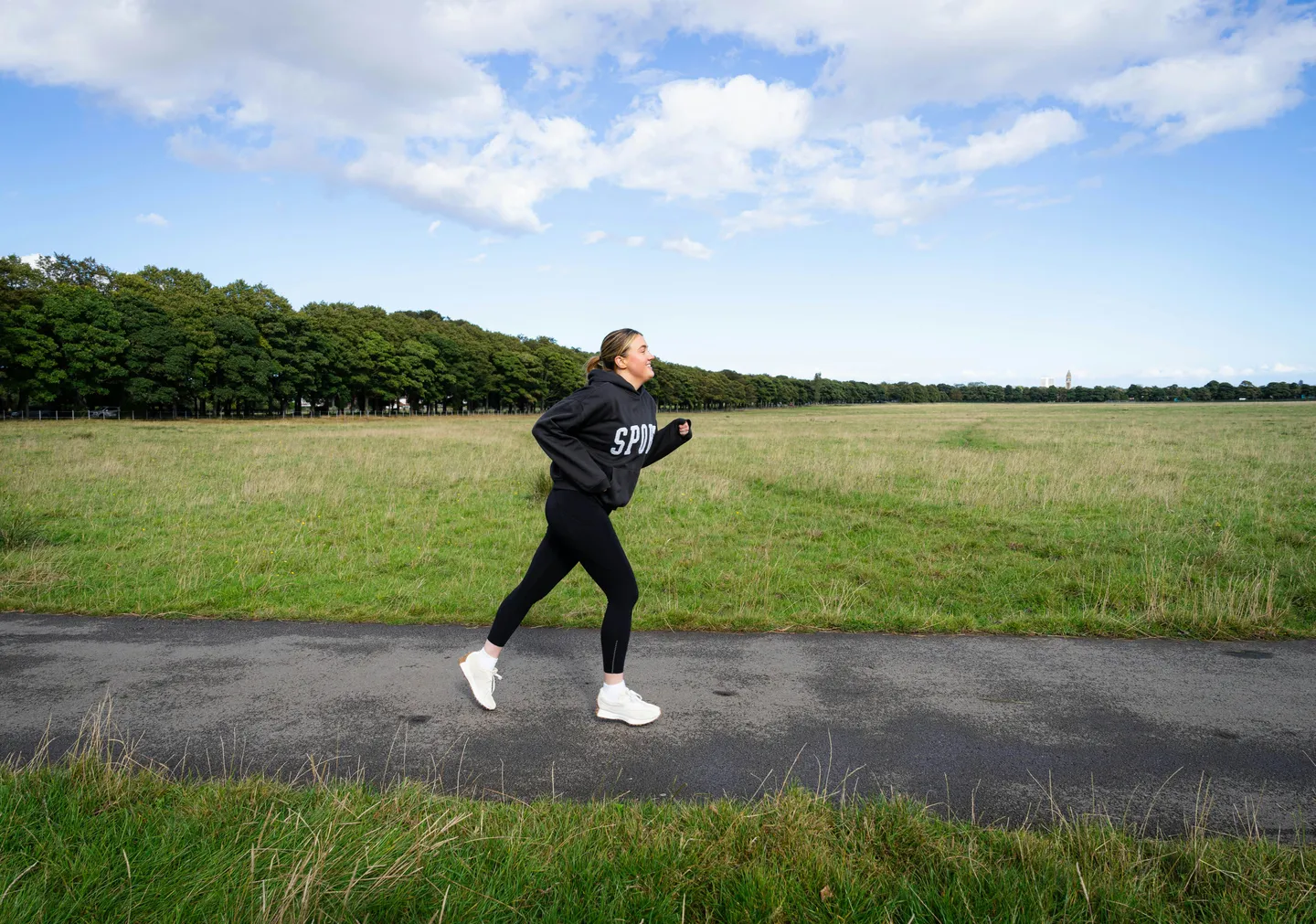
Wellbeing
|April 15, 2025
Activity and Mood: Incorporating Exercise into Student Life
It’s no secret that exercise is good for your body, but what often gets overlooked is how powerful it can be for your mind. In this post we explore how exercise supports your mood and share some practical ways to stay active while navigating student life.
When you are balancing deadlines, part-time jobs, and social commitments, physical activity might feel like one more thing to squeeze into your already packed schedule.
But regular movement doesn’t have to mean hours in the gym or intense workout routines. In fact, the most important benefits of physical activity often come from small, consistent efforts. Whether it’s a walk between lectures or a short stretch before bed, moving your body has a direct, proven impact on your mental wellbeing.
How Physical Activity Supports Mental Health
When you exercise, your brain releases chemicals like endorphins and serotonin. These are natural mood boosters that can help reduce feelings of stress, anxiety, and depression. Exercise also improves sleep, supports concentration, and helps regulate your energy levels — all things that are especially helpful during intense study periods.
Here’s what the science says:
- Just 20 to 30 minutes of moderate physical activity can improve your mood for hours afterwards.
- Regular movement has been shown to reduce symptoms of depression and anxiety in both clinical and non-clinical populations.
- Exercise can increase self-esteem, especially when it becomes part of a regular routine.
And this isn’t just about structured workouts. Cleaning your room, cycling to campus, dancing in your kitchen, these all count. The key is consistency and choosing activities you actually enjoy.
Why It’s Easy to Let Exercise Slide at Uni
University life can be unpredictable. Some weeks are full of energy, others feel overwhelming. It’s not always easy to maintain a routine, and when you’re low on motivation or feeling anxious, exercise can feel like the last thing you want to do.
You might also feel pressure to “do it properly”, as if only an hour at the gym or a high-intensity session counts. That mindset can stop you from starting at all.
Here’s the truth: movement doesn’t have to be perfect to be valuable. Even ten minutes of gentle stretching or a walk around the block can shift your mindset and improve your day. If your goal is better mood and mental clarity, the best exercise is the one you can do regularly without dread.
Simple Ways to Stay Active as a Student
You don’t need a full workout plan to get the benefits of physical activity. Here are a few realistic, low-pressure ways to include more movement in your week:
1. Walk Whenever You Can
Walking is one of the easiest ways to clear your mind, improve your focus, and stay active. Try walking between lectures, getting off the bus a stop early, or taking a 10-minute break from your desk to walk outside.
Even short walks count, especially when they become part of your daily rhythm.
2. Try Short, At-Home Workouts
There are hundreds of free online videos for yoga, pilates, strength training, or even 7-minute routines. You don’t need equipment or lots of space. Find something that fits your mood — energising in the morning, relaxing at night.
Consistency is more important than intensity.
3. Join a Club or Class
If motivation is a challenge, try a structured setting. University sports clubs and fitness classes are often free or discounted for students, and they are a great way to meet people while staying active.
Don’t worry if you’re not a natural athlete. There’s usually something for every level, from social teams to beginners’ sessions.
4. Make It Social
Exercise doesn’t have to be a solo mission. Going for a walk with a flatmate, joining a local park run, or trying a dance class with friends can make movement feel fun and less like a chore.
When it’s something you enjoy, you’re more likely to stick with it.
5. Use Movement as a Break
When you are feeling stuck during revision or low in energy, a few minutes of movement can give your brain the reset it needs. Step away from your desk, do a few stretches, shake out your limbs, or walk to get a coffee. These micro-breaks help reduce stress and improve concentration.
Adapting to What You Need
There will be times when your energy is low or your mental health feels heavy. On those days, it’s important to meet yourself where you are. Movement should support you, not punish you.
If you are feeling anxious, a gentle walk or stretch might help you settle. If you are feeling down, just getting outside into fresh air for five minutes can help shift your state.
The goal is not to be perfect or stick to a strict routine. The goal is to build a relationship with movement that feels kind, realistic, and good for your mental health.
Final Thoughts: Move to Feel Better, Not to Tick a Box
Physical activity is not about chasing a certain body type or pushing yourself to exhaustion. It’s about giving your mind and body what they need to feel grounded, energised, and resilient, especially during the challenges of student life.
Start small. Choose activities you enjoy. Listen to your body. And remember, even a little movement is better than none.
If you’re struggling with motivation or feeling overwhelmed, reach out to your university wellbeing team or check out support services like Student Space or Student Minds. Movement is a great tool for mental health, but it’s just one piece of the puzzle. Support is always available.
Related Articles

May 13, 2025
Creating an Integrated Routine: Balancing Study, Work, and Leisure
University life demands a lot, deadlines, part-time work, lectures, social commitments, house admin, and somewhere in the mix, sleep and self-care. Trying to juggle it all can feel like a constant struggle, especially when time never seems to be on your side.

May 4, 2025
Sleep, Screens, and Sanity: Crafting a Restful Night Routine
Let’s be honest, sleep is probably not top of your priority list right now, is it? Between lectures, deadlines, late-night chats, and the never-ending scroll on TikTok, it’s easy to let bedtime slide. After all, there’s always coffee in the morning, right?

April 2, 2025
Nutrition and Mental Health: Eating Well for a Healthy Mind
There’s a growing body of research showing a strong link between nutrition and mental health. What you eat doesn’t just affect your body — it affects your brain too. From mood and energy levels to focus and stress resilience, food plays a bigger role than most of us realise.
News & Hot Takes
Get weekly updates
Interested in Mind Measure?
Fill in the adjacent form and we can send you a login so you can experience mind measure yourself.
